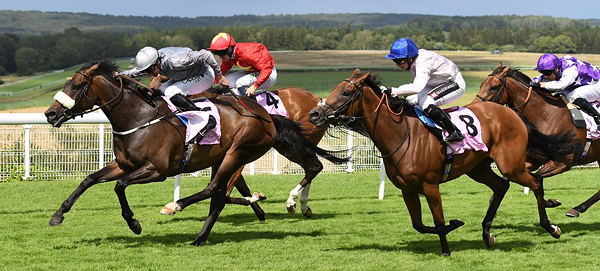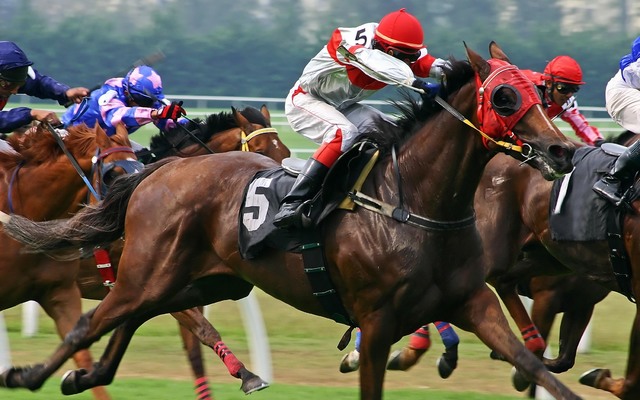Horse racing thrills millions, but for newcomers, betting can be daunting. Where do you start? What should you watch for? This guide breaks down essential betting tips for beginners, helping you navigate the track with confidence. From understanding race types and betting options to analyzing horse form and managing your budget, we'll walk you through the key elements of smart betting.
Know the Basics
Before placing any bets, it's crucial to understand how horse racing works. Familiarize yourself with common horse race types, horse race betting online options, and racing terminology. That said, it's best to visit Fan Odds or other reputable sites for this purpose. This knowledge forms the foundation for making informed decisions.
What are the main types of races? Flat races are run on level ground, while jump races involve horses clearing hurdles or fences. Each type requires different skills from both horse and jockey.
Betting options vary, too. The simplest is a 'win' bet, where you pick a horse to finish first. 'Place' and 'show' bets are safer options, paying out if your horse finishes in the top two or three spots, respectively.
Do Your Homework
Research is key in horse racing. Study the form guide, which provides details on each horse's past performance. Look at factors like:
- Recent results: How has the horse performed in its last few races?
- Track conditions: Does the horse prefer firm or soft ground?
- Distance: Is the horse suited to the race length?
- Jockey and trainer: What's their track record?
You can also look at different horse racing data on different horse racing websites. This information helps you make educated guesses about a horse's chances. Want to learn more about these sites? Scour the internet now to make sure you're well-guided.
Understand the Odds
Odds tell you how likely a horse is to win and how much you could potentially earn. Shorter odds (like 2/1) mean the horse is a favorite but will pay out less. Longer odds (like 20/1) indicate an underdog with a bigger potential payout.
Remember, odds aren't just about winning chances. They're also influenced by how much money is bet on each horse. Sometimes, this can create opportunities where the true odds are better than the betting odds.
Start Small
When you're new to horse racing, it's wise to start with small bets. This approach lets you learn the ropes without risking too much money. As you gain experience and confidence, you can gradually increase your bets.
Set a budget for your betting activities and stick to it. Treat it like any other form of entertainment - only bet what you can afford to lose.
Don't Chase Losses
It's easy to get caught up in the excitement and try to win back losses quickly. This often leads to rash decisions and bigger losses. If you're having a bad day, it's okay to step back and try again another time.
Remember, even experienced bettors have losing streaks. The key is to stay disciplined and not let emotions drive your betting choices.

Explore Different Bet Types
While win, place, and show bets are great for beginners, there are other betting options to explore as you get more comfortable:
- Exacta: Pick the first and second-place finishers in order.
- Trifecta: Pick the first, second, and third-place finishers in order.
- Superfecta: Pick the first four finishers in order.
These bets are harder to win but offer larger payouts. They can add excitement to your betting experience once you're ready for more complex wagers.
Consider Multiple Factors
When choosing a horse, look beyond just recent wins. Consider factors like:
- Class: Is the horse moving up or down at a competitive level?
- Weight: How much weight does the horse carry compared to others?
- Speed figures: How fast has the horse run in recent races?
- Breeding: Does the horse's pedigree suggest it will perform well?
No single factor guarantees a win, but considering multiple aspects gives you a more rounded view of each horse's chances.
Watch the Paddock
If you're at the track, take time to observe the horses in the paddock before the race. Look for signs of a horse's condition and temperament:
- Is the horse calm or agitated?
- Does its coat look healthy and shiny?
- How is it moving? Does it look comfortable and energetic?
These visual cues can offer insights that aren't available in the form guide.
Be Wary of Hot Tips
Everyone loves insider information, but be cautious about tips from strangers or unreliable sources. While some tips pan out, many don't. It's better to rely on your own research and judgment.
If you do hear a tip, try to verify it with your own research before betting.

Keep Records
Tracking your bets helps you learn from both wins and losses. Note down details like:
- Which horses you bet on, and why
- The odds and your stake
- The outcome of each bet
Over time, this record will reveal patterns in your betting habits. You might notice you're better at picking winners in certain types of races, or that you tend to overlook important factors.
Stay Informed
Horse racing is always evolving. New stars emerge, training techniques change and tracks get modified. Staying up-to-date with racing news helps you make better-informed decisions.
Follow reputable racing journalists and websites. They often provide valuable insights and analysis that can inform your betting strategy.
Conclusion
Betting on horse races can be an exhilarating experience. By following these tips, you'll be better equipped to make informed decisions and enjoy the sport responsibly. Remember, there's always more to learn in the world of horse racing. Stay curious, keep studying, and may luck be on your side!